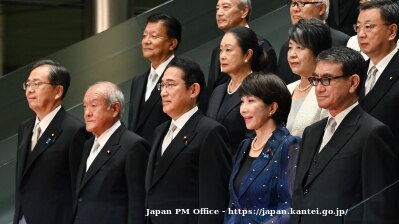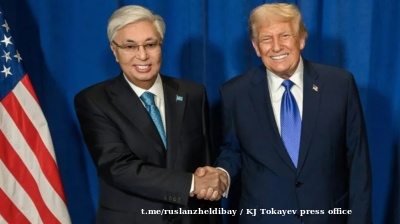US and European officials have begun quietly talking to the Ukrainian government about what possible peace negotiations with Russia might entail to end the war, the US news channel NBC has reported, citing senior US officials, unleashing a storm of controversy.
That report comes on top of two explosive articles that also cast a pall over Ukraine’s prospects of winning the war against Russia. Ukraine’s top general told The Economist that the conflict had reached a “stalemate” and suggested that no victory was possible unless the West significantly stepped up its support.
A later cover piece published in Time Magazine painted a picture of an increasingly irrational Ukrainian President Volodymyr Zelenskiy, who is losing the confidence of his high command as Ukraine fails to make any significant progress against Russia.
“Nobody believes in our victory like I do. Nobody,” Zelenskiy told the magazine in an interview after a trip to Europe.
Time correspondent Simon Shuster followed him back to Kyiv and extensively interviewed Ukraine’s elite, who told a different story:
"The usual sparkle of his optimism, his sense of humour, his tendency to liven up a meeting in the war room with a bit of banter or a bawdy joke, none of that has survived into the second year of all-out war. 'Now he walks in, gets the updates, gives the orders, and walks out,' says one longtime member of his team. Another tells me that, most of all, Zelenskiy feels betrayed by his Western allies. They have left him without the means to win the war, only the means to survive it," Shuster reports.
Zelenskiy has already admitted in public that the outbreak of war in the Middle East is a serious problem for Ukraine, as it will draw attention and resources away at a time when his country has become entirely dependent on Western largesse to stay in the fight.
No one is yet suggesting that Zelenskiy's resolve may break, but the Ukrainian president is clearly under a lot of pressure, and that pressure is bound to mount as the stream of Western money and munitions slows going forward. However, the West is unlikely to abandon Kyiv completely, and its leaders, including US President Joe Biden and European Commission President Ursula von der Leyen, remain firm in their resolve to remain steadfast supporters of Ukraine.
Whether Putin is willing to talk, if Ukraine were to float the idea, remains a matter of speculation. Most observers believe that the Kremlin wants to wait for the results of next November’s US presidential election before deciding on a course of action, which could see Donald Trump returned to office, amongst other scenarios.
Zelenskiy commented on the rumours about so-called negotiations in his evening comments: "I don't know where it comes from and who writes it. Everyone knows my attitude, the opinion of Ukrainian society towards such things. We have repeatedly heard that they are allegedly inciting us to do something in Ramstein [the US Air Force base in Germany], but there is no such thing and there will be no such thing... We do not negotiate with terrorists."
The NBC and Time reports immediately provoked a rebuke by Zelenskiy of his general and a denial that Ukraine was in talks with Russia over a possible halt to hostilities. However, as bne IntelliNews has reported, there is a palpable Ukraine fatigue amongst Kyiv’s partners as Ukraine's funding is increasingly in doubt after the US congress failed to approve new applications twice in the last two weeks.
NBC reported that officials said representatives of more than 50 countries who support Ukraine, including Nato members, broached the topic of a ceasefire in October. US and European officials are increasingly concerned that the war is at a stalemate, after Ukraine’s much-vaunted counteroffensive failed to produce major results. Since the offensive started in the summer, the Armed Forces of Ukraine (AFU) have managed to advance no more than 16 km, according to reports.
According to NBC, some US military officials speculate privately that the outcome of the war may simply come down to who can outlast the other. Russian President Vladimir Putin has put his economy on a war footing and ramped up military production in preparation for a long war. Russia’s economy has more or less recovered from the initial shock of sanctions and is on course to grow by 2.2% this year, prompting Prime Minister Mikhail Mishustin to claim recently that “the worst is over.” Several important European countries, on the other hand, are facing recession and deindustrialisation.
More importantly, Ukraine is running out of ammunition and the West’s failure to invest into military production has left Kyiv desperately short of munitions and materiel to continue the war.
Both sides are now dug in as winter approaches and the first snows fall, which will make any breakthroughs even more elusive. Ukraine is also struggling to recruit fresh soldiers, and Zelenskiy's increasingly tough measures to replenish manpower are causing growing resentment. Putin has cautiously avoided a mass mobilisation, but as Russia has three and half times the population of Ukraine, in theory it still has a lot more potential soldiers in reserve.
Zaluzhnyi interview
The ceasefire talk comes on the heels of a controversial interview with The Economist with Ukraine top general Andrey Zaluzhnyi, who said, in particular, that the situation at the front has reached a “dead end”, when neither side can advance, because they are “equally technologically equipped,” reminiscent of the “positional” First World War.
The White House said that the article by the commander-in-chief of the AFU stresses how important it is for the United States to continue to support Ukraine during the war of aggression waged by Russia.
According to Politico, Zaluzhny's statements ignited "partisan passions" in the US Congress, which is already divided over the need for and amount of financial support it should offer Ukraine.
The Kremlin also commented on Zaluzhnyi's interview, saying the situation has not reached a dead end, and that Russia "constantly continues" making progress in the war (so-called special military operation) against Ukraine.
Zelenskiy’s office was displeased with General Zaluzhny for spelling out military challenges. Ihor Zhovkva, deputy head of the president’s office, publicly criticised the interview on national TV following its publication. Zhovkva said that the military should not bring to the public what is happening at the front.
"In the place of the military, the least I would do is comment for the press, for the open public, about what is happening at the front, what may happen at the front, some options. Because then we make the aggressor's job easier," he said. "I am sure that everything has been very carefully read, noted, and conclusions have been drawn. If we somehow succeed in this way, perhaps this is a very deep strategic plan. But I'm very surprised."
Zhovkva added that "one of the heads of the leaders' offices" called him after the mentioned article was published. "And they simply ask me in a panic: 'What should I report to my leader? Are we really at a dead end?' We are trying to achieve this effect with this article?", said the indignant OP representative.
Zaluzhny wrote an accompanying essay that detailed his concerns.
The conflict can turn into a protracted and positional one – like WWI. If this does happen, it will be good for Putin – Russia will continue destroying Ukraine and threatening Ukrainian statehood, while gathering forces for a new massive attack on Ukraine or another country. In order to not let that happen, Zaluzhny writes, "technology is the answer".
He sees several key areas that can secure a Ukrainian victory: Advantage in the air: modern aircraft and an enormous quantity of drones to conduct massive strikes and exhaust Russian air defence; electronic warfare devices; counter-battery, defeating enemy artillery.
The current parity might not last; mine-breaching technology: Russian minefields stretch 20 km in places and Russia keeps replenishing them, mining territories from a distance; building up reserves.
Ukraine must not be underestimated: “We have proven time and time again our skill and our dedication.” But no one must underestimate Russia either: "It will have superiority in weapons, equipment, missiles and ammunition for a considerable time. Its defence industry is increasing its output, despite unprecedented sanctions," General Zaluzhny warns. And often, it does so faster than Ukraine's Allies.
In the midst of the furore a Gallup poll found that nearly two-thirds (64%) of Americans say neither side is winning the war, 20% say Ukraine is prevailing and 14% say Russia is.
"Forty-three percent now favour the US trying to help end the war quickly, even if that means Ukraine cedes territory to Russia,” the poll found.
“Helping Ukraine too much or too little?” the survey asked. Forty-one percent of Americans overall say the US is doing too much, which has risen from 24% in August 2022 and 29% in June 2023. Thirty-three percent, down from 43% in June, say the US is doing the right amount, while 25% believe the US isn’t doing enough.
Features

Japan’s new ‘Iron Lady’ Sanae Takaichi – a win for Taiwan, a slap in the face for China
Galling to China, Takaichi is said to be a regular visitor to Yasukuni Shrine, which, given its enshrinement of Japan’s war dead, including a number of convicted war criminals, is seen as a political slap in the face by Beijing.

Malaysia’s fuel recalibration: balancing fiscal discipline and public relief
In late September 2025, the Malaysian government unveiled a recalibrated approach to its long-running petrol subsidy, lowering the price of RON95 for citizens to $0.47 per litre.

Did Tokayev’s visit to New York indicate any meaningful expansion of Kazakh-American economic ties?
Best not believe the hype.

Water scarcity forces a rethink of Tehran's dominance
Iran is fast running out of water fast and the country's president wants to move the capital immediately.




